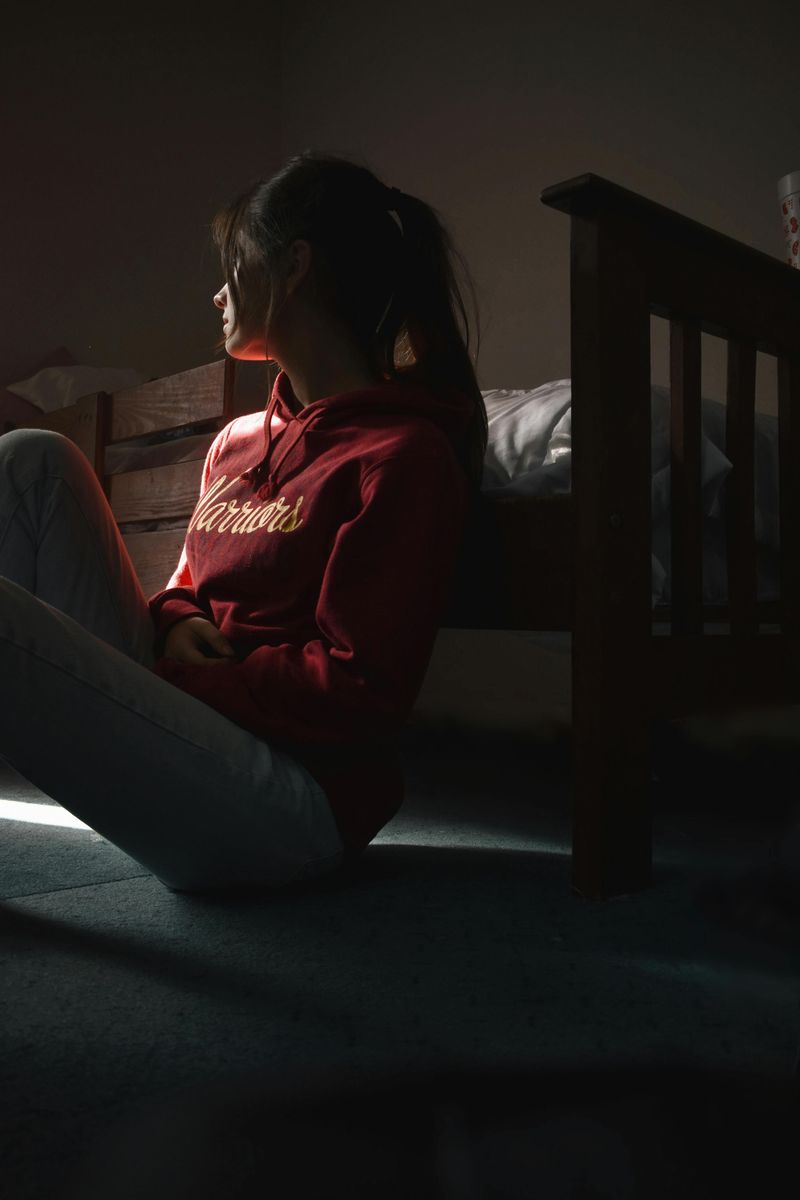17 Things Lonely People Do in Private (But Would Never Tell You)

Loneliness is one of those quiet struggles that people rarely admit out loud. On the surface, someone might seem completely fine—chatting at work, posting on social media, or even cracking jokes—but behind closed doors, their habits can tell a different story. The truth is, when people feel disconnected, they often find small, quirky ways to cope with that emptiness.
1. Talk to Themselves Out Loud

Having a full-blown conversation with yourself might sound unusual, but it’s surprisingly common among lonely people. Saying thoughts out loud helps break the silence, giving a sense of companionship, even if it’s just with their own voice.
Sometimes it’s just muttering a grocery list, other times it’s venting frustrations in the car or whispering encouragement before bed. While it may seem odd, talking to yourself can be a coping tool—it fills the void of not having someone nearby to listen.
And let’s be honest: we all sound a little smarter when we narrate our lives out loud.
2. Create Imaginary Conversations

In moments of loneliness, the mind often drifts into “what if” scenarios. People might imagine chatting with a friend who isn’t there, role-play an argument they wish they’d won, or daydream about a perfect date.
These pretend conversations bring temporary relief because they simulate real connection. Even though it’s not the same as talking to someone in person, it satisfies that deep human need to be heard. The danger is when this becomes a substitute for real interaction.
Still, who hasn’t walked away from the shower thinking, “Wow, I really nailed that imaginary debate with my boss”?
3. Binge-Watch Shows for ‘Company’

Streaming services weren’t just made for entertainment—they’re also a quiet comfort for those who feel alone. Many lonely people turn on their favorite shows not just to watch, but to feel like they’re part of the cast.
Characters can start to feel like friends, and storylines like shared experiences. It’s why some people rewatch the same shows over and over—it creates a sense of familiarity, almost like a reunion with old pals.
While it’s fun to lose yourself in endless episodes, it’s really about filling the room with voices, laughter, and drama that make the silence a little easier to bear.
4. Scroll Social Media Endlessly

There’s a difference between checking social media and living in it. Lonely people often scroll aimlessly, not even absorbing much of what they see. It’s less about the content and more about the illusion of connection.
Seeing other people’s updates can make them feel part of something bigger, even if they’re just silently observing. Of course, this habit has a flip side—it can also magnify loneliness when everyone else seems happy and connected.
But in the moment, endless scrolling serves as a distraction, a digital background noise that replaces the emptiness of real-life silence.
5. Cling to Old Texts and Emails

Sometimes the loneliest moments are filled by revisiting the past. People will scroll through old text messages or reread emails, not because they expect a reply, but because it reminds them of a time when they felt wanted.
That old “good morning” text from a friend or ex becomes more than just words—it’s proof that someone once cared. While it can be bittersweet, clinging to these digital memories is a way of reassuring themselves that they’re not always invisible.
It’s a little like holding onto a photo album; the only difference is that the photos talk back in text bubbles.
6. Sleep More Than Usual

When loneliness becomes overwhelming, extra hours of sleep can feel like the easiest escape. After all, while you’re sleeping, you don’t have to deal with the ache of silence or the sting of being alone.
It’s not always about being physically tired. Sometimes it’s about passing time until the day feels less empty. A nap here, an early bedtime there—it can add up quickly. Though it might seem harmless, this habit can slowly turn into avoidance, where the bed becomes a refuge from reality.
Still, we can’t deny the comfort of pulling the covers over our heads and pretending the world doesn’t exist for a little while.
7. Over-Share Online

Loneliness has a sneaky way of slipping into status updates and long posts. People who feel unseen in real life may pour their thoughts into forums, blogs, or social media captions that read more like diary entries.
The internet feels safe in that way—it’s anonymous enough to allow honesty but public enough to feel heard. Over-sharing online isn’t necessarily bad; it can be therapeutic. But it often hides the deeper truth that someone craves connection offline, too.
While strangers might “like” or comment, what lonely people really want is someone they know to lean in and say, “I get it.”
8. Talk to Pets (or Plants)

For many, furry friends or leafy companions are more than just pets or decorations—they’re stand-in listeners. Talking to a dog, cat, or even a houseplant provides comfort because they never judge or interrupt.
Pets, in particular, return affection, which can make someone feel genuinely cared for. Plants might not wag their tails, but speaking to them can feel grounding, like you’re putting good energy out into the world.
This small ritual fills the void of human interaction and proves that connection doesn’t always have to come from people. After all, a wagging tail or a thriving plant can be more comforting than a half-hearted text.
9. Eat Comfort Food in Secret

Food can sometimes become a substitute for companionship. When loneliness hits, people may turn to comfort foods—ice cream, chips, or that late-night pizza—as a way to soothe emotions.
The act isn’t just about eating; it’s about filling a void. Secret snacking often comes with shame, which is why it happens when no one’s around. But for a few minutes, that favorite treat creates a warm, familiar feeling.
It’s a quick fix, and while it won’t solve loneliness, it can make the night feel a little less empty. Plus, mac and cheese has never ghosted anyone.
10. Pretend They’re Busy When They’re Not

Sometimes the hardest part of loneliness is admitting it, so people invent busyness to mask it. Declining invitations with vague excuses like “I’m swamped” or “I already have plans” helps them avoid vulnerability.
This tactic isn’t always about avoiding others—it’s often about protecting themselves from rejection. Pretending to be busy creates an illusion of control, even when the calendar is painfully empty. The irony is that this habit only deepens loneliness.
But in the moment, it feels safer to look unavailable than to admit they’re sitting at home with nothing to do but scroll through their phone.
11. Invent Excuses Not to Go Out

Loneliness can create a strange paradox: people want connection, yet they push it away. Invitations to events or casual hangouts often get declined with excuses—tiredness, errands, or simply “not in the mood.”
It’s not that they don’t want company. More often, it’s fear of awkwardness or the belief that they won’t truly belong. Staying home feels less risky than venturing out and possibly feeling even lonelier in a crowd. The excuse may sound harmless, but it hides a deeper struggle.
Ultimately, avoiding social interaction becomes a habit, even when their heart quietly wishes someone would insist they come anyway.
12. Overthink Every Small Interaction

One smile from a stranger or a short reply from a coworker can set off hours of analysis. Lonely people often dissect every tiny interaction, searching for signs of connection—or rejection.
It might look like replaying a conversation over and over, wondering, “Did I say something weird?” or “Did they really mean that compliment?” This constant overthinking doesn’t just exhaust the mind—it highlights how deeply they crave validation.
While others brush off small moments, lonely people treat them like emotional lifelines. It’s like turning a two-sentence chat into a three-act play in their head.
13. Shop Just to Be Around People

A trip to the store can feel like a mini social outing when loneliness lingers. Even if they don’t need to buy anything, being surrounded by the buzz of human activity brings comfort.
Casual exchanges with cashiers or fellow shoppers become small but meaningful moments of connection. Wandering through aisles gives them a sense of belonging, even if it’s temporary. For some, grocery stores or malls are less about shopping and more about reminding themselves that they’re not invisible.
There’s something oddly reassuring about being in a crowd, even if no one knows your name.
14. Daydream About Ideal Friendships or Relationships

The imagination becomes a safe haven when reality feels empty. Lonely people often create elaborate daydreams of friendships, romantic partners, or social lives they wish they had.
These fantasies can be comforting, almost like mental vacations. They allow someone to feel connected, even if it’s only in their mind. But there’s also a bittersweet edge—it’s a reminder of what’s missing. Still, these daydreams aren’t meaningless; they highlight what someone truly values in relationships.
In a way, they serve as emotional blueprints for the kinds of bonds they’re quietly yearning for.
15. Leave the TV or Radio On While Sleeping

Silence can feel suffocating at night, which is why many lonely people fall asleep with background noise. A TV show, podcast, or radio station provides the illusion of company.
That soft hum of voices makes the room feel less empty. It’s not about watching or listening—it’s about replacing silence with something that mimics human presence. This habit is both comforting and telling: it shows how deeply people crave sound that feels alive.
For some, the thought of waking up to silence is worse than any sleep disturbance caused by the flickering light of a TV screen.
16. Latch Onto Casual Acquaintances

A casual chat with a coworker or a neighbor can become disproportionately important to someone who feels isolated. They may invest heavily in these light interactions, replaying them in their head or hoping they’ll grow into something deeper.
It’s not desperation—it’s the hunger for genuine connection. When loneliness takes hold, even a passing “how’s your day?” can feel like a lifeline. The risk, of course, is expecting too much from people who may not be ready for that level of closeness.
But in the moment, it’s less about logic and more about savoring any thread of human contact.
17. Hide Their Loneliness Behind Humor or Busyness

From the outside, you’d never guess some of the most “fun” or “busy” people feel lonely. Humor becomes a mask, and packed schedules become distractions.
They laugh the loudest, plan the most activities, or always seem upbeat—but behind that performance, they’re hiding emptiness. It’s easier to keep people entertained than to risk admitting, “I feel alone.” This coping mechanism works in the short term but can become exhausting.
Still, many choose it because appearing strong or happy feels safer than being vulnerable. It’s a silent reminder that loneliness often hides behind the brightest smiles.

Comments
Loading…